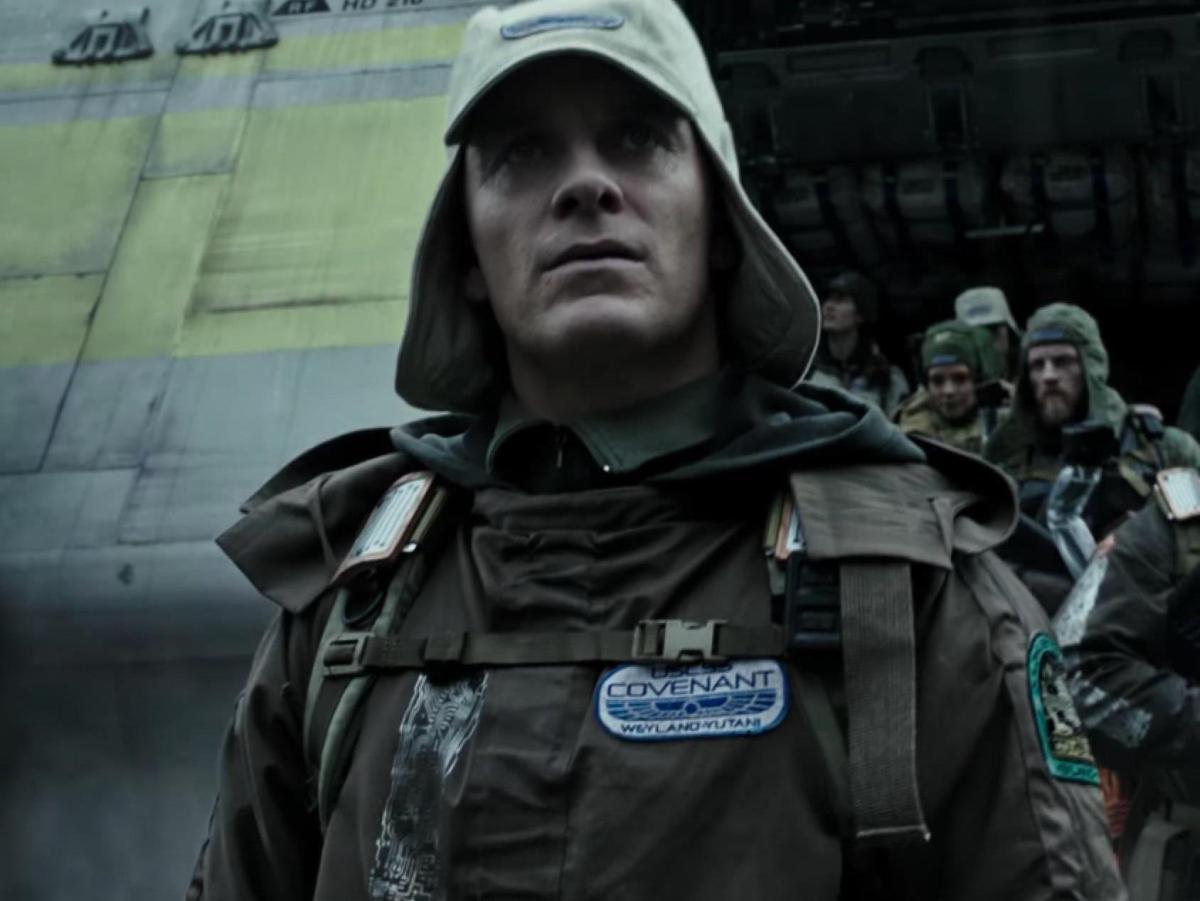Alien: Covenant directed by Ridley Scott.
In a film franchise predicated upon exploring new territory, often against warnings to the contrary, it would seem that Ridley Scott did just that when he returned to the Alien fold with 2012’s Prometheus. The end result was thrilling, but not in the way that xenomorph aficionados might have anticipated. More than three decades after he first sent a spaceship crew to explore a distant planet and battle fearsome extra-terrestrial creature, he wasn’t just concerned with replicating his past success. The veteran filmmaker wanted to expand the mythology more than the horror, and the spectacle more than the suspense. And, he wanted to do ponder not just his original titular figures, but humanity.
Now helming a sequel to that ambitious prequel, Alien: Covenant, Scott is back with a slightly different task. He’s still interested in the same ideas that sat at the centre of Prometheus, yet he’s also cognisant of inching closer, in terms of his on-screen timeline, to the series’ 1979 beginnings. Accordingly, his latest effort bridges the gap not just in a narrative sense, picking up ten years after its immediate predecessor, but also tonally. In short, he once again endeavours to expand the lore behind this now eight-film world (if the two Alien vs. Predator features are included), and once more throws up chest-bursting, face-hugging jumps, and scares as well.
The spaceship Covenant is the film’s initial setting. The year is 2104, and its crew of couples are cryo-sleeping away their trip to the far-off Origae-6, where they’ll awaken 2000 colonists and build a new society — with on-board frozen embryos, and the old-fashioned way as well. Just over seven years before they’re due to reach their destination, and after a space storm awakens them from their slumber, they intercept a human transmission from a closer, previously undiscovered planet. New captain Oram (Billy Crudup, Jackie) decides to investigate, despite the protests of his second-in-command Daniels (Katherine Waterston, Fantastic Beasts and Where to Find Them). A man of faith an environment that values science, it’s Oram’s chance to prove his leadership credentials. If the nearby landmass suits their requirements, it could just become their new home instead.
Oram’s specific battle between belief and knowledge doesn’t comprise Alien: Covenant’s main, overt thematic concern; however Scott and his screenwriters John Logan (TV’s Penny Dreadful) and Dante Harper, working with a story by Jack Paglen (Transcendence) and Michael Green (Logan), introduce this conflict with other big concepts on their minds. That the first faces the film shows across two timelines — commencing with a flashback to the first formative experiences of Prometheus’ android David (Michael Fassbender, Assassin’s Creed), before jumping to the Covenant’s resident synthetic Walter (also Fassbender) — both belong to non-human characters is significant in the broader picture the feature persuasively paints, as are their initial deeds. One is asked to play Wagner and pour tea, the other attends to routine duties befitting his subservient status, bringing ideas of creation, intention, class, defiance, and the purpose of artificial intelligence into play in an effort already concerned with humanity’s beginnings, its potential end, other life, and the intrusion of destructive forces.
Ostensibly entering more action-packed terrain as the ship pursues their new destination, with crossing paths with fearsome critters and watching the crew’s numbers dwindle at their hands a foregone conclusion, Scott and company succeed in delivering both the frights and jolts — and in keeping their underlying deliberations bubbling underneath. That’s a considerable achievement, and one handled with exacting care. Indeed, as the xenomorphs emerge, and Alien: Covenant goes further into the cave of their evolution and impact, it’s impossible to separate the resulting carnage from deeper contemplations.
Along the way, the film retains Prometheus’ commitment to awe-inspiring images; this might be a darker outing in more ways than one, but returning cinematographer Dariusz Wolski ensures it’s no less dense, detailed and striking. Whether roaming the decks of the ships, exploring the new planet or peering at aliens, Alien: Covenant‘s visuals find the balance between wonder and unease, as matched by Jed Kurzel’s (Una) score, and befitting a movie that jumps obviously but effectively between the musings of existential, philosophical science fiction, and the growing body count of unsettling horror.
Just as there’s no avoiding the destructive force at the heart of the Alien franchise, however, there’s also no avoiding the plot’s familiar notes when it adopts stalk and slash mode. That doesn’t undercut the film’s tension — Scott knows we’ve seen the basic mechanics of the narrative before, and wants these echoes to continue to infest each instalment, highlighting similar situations as well as the comparable choices, motivations, and impulses that lead to them — though it does have an impact upon Alien: Covenant’s cast. Fassbender, with the fleshiest requirements as two robots, relishes his dual part, while Waterston admirably follows in Sigourney Weaver’s footsteps. The remainder, which includes Danny McBride (Vice Principals), Demián Bichir (The Hateful Eight), Carmen Ejogo (Born to Be Blue), Jussie Smollett (Empire), Callie Hernandez (La La Land) and Amy Seimetz (Lovesong), leave much less of an imprint purely due to their function in the script.
Rating: 3 1/2 stars out of 5
Alien: Covenant
Director: Ridley Scott
USA | Australia | New Zealand | UK, 2017, 122 mins
Release date: May 11
Distributor: Fox
Rated: MA
Actors:
Director:
Format:
Country:
Release:





